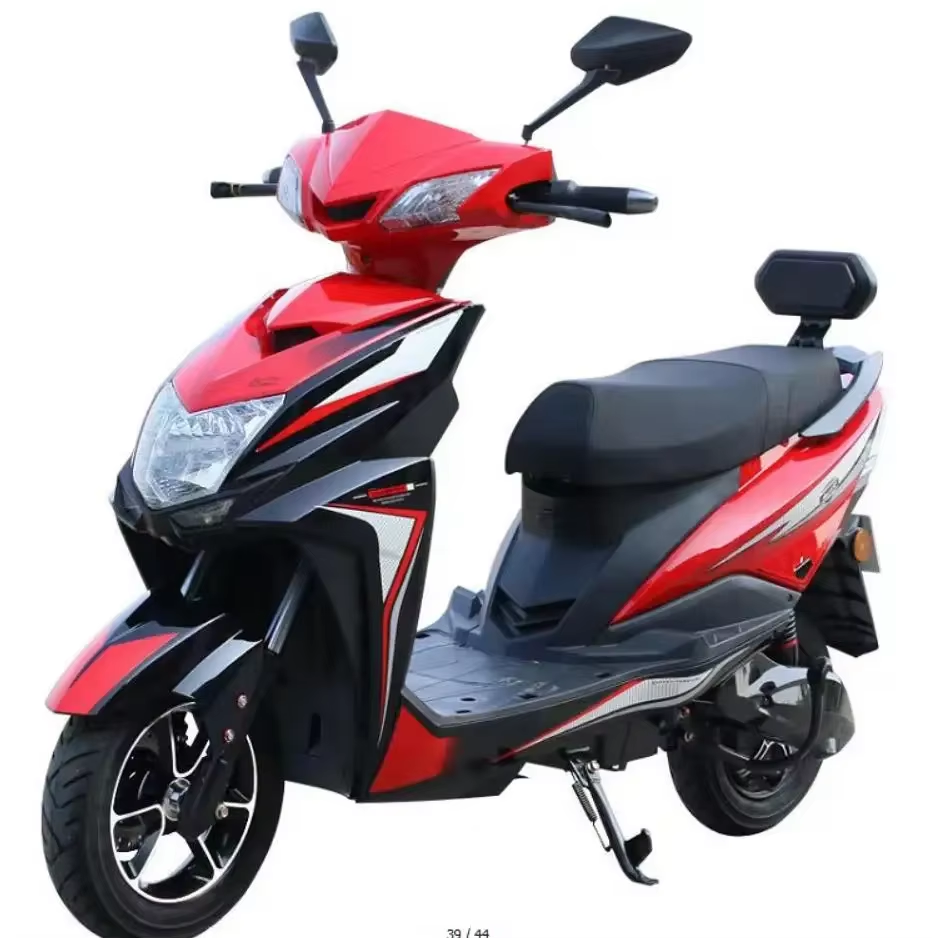As the world shifts towards sustainable energy solutions, Indonesia is embracing a greener future by prioritizing electric vehicle (EV) adoption. The government's ambitious goal to reduce carbon emissions and promote renewable energy sources has created a burgeoning market for electric motorcycles in Indonesia. In line with this vision, PT Hadde Prolifik Internasional is conducting a comprehensive Feasibility Study (FS) to establish an electric motorcycle manufacturing plant. This project is a collaborative effort with PT X and aims to revolutionize the transportation sector by producing eco-friendly motorcycles for the Indonesian market.
Why Electric Motorcycles?
Motorcycles are a vital mode of transportation in Indonesia, with over 7 million units sold annually. The country’s dense urban areas, such as Jakarta and Surabaya, face severe traffic congestion and air pollution. The introduction of electric motorcycles offers a sustainable solution by reducing greenhouse gas emissions, lowering fuel costs, and providing efficient mobility options.
Electric motorcycles are not just a response to environmental concerns; they are also a reflection of changing consumer preferences. As more individuals and businesses prioritize sustainability, the demand for electric two-wheelers is expected to rise significantly. By tapping into this growing market, PT Hadde and PT X aim to be at the forefront of Indonesia’s transition to clean energy.
Project Overview: Establishing an Electric Motorcycle Plant
The feasibility study conducted by PT Hadde aims to assess the commercial viability of setting up a state-of-the-art manufacturing facility for electric motorcycles. The proposed plant will be strategically located in West Java, ensuring accessibility to key markets and suppliers. This facility will focus on producing high-quality electric motorcycles with a planned annual capacity of 1 million units.
Key Objectives of the Feasibility Study
- Market Demand Analysis: Understanding the domestic and ASEAN market potential, including competitive analysis and consumer preferences.
- Technical Feasibility: Assessing the technology requirements, site infrastructure, and production capabilities.
- Financial Analysis: Estimating capital expenditures (CapEx), operating expenses (OpEx), and projecting profitability with metrics like ROI and IRR.
- Regulatory Compliance: Ensuring alignment with local regulations, including the government’s incentives for electric vehicle production.
- Risk Assessment: Identifying potential risks in the market, technology, finance, and supply chain, and developing mitigation strategies.
Why Indonesia?
Indonesia presents a significant opportunity for electric motorcycle manufacturers due to several factors:
- Growing Urbanization: With over 100 million motorcycles on its roads, Indonesia is one of the largest two-wheeler markets globally. The shift to electric vehicles can alleviate the environmental impact of traditional fuel-powered motorcycles.
- Government Support: The Indonesian government has enacted policies like Perpres No. 55/2019, which supports the acceleration of electric vehicle adoption through tax incentives and subsidies.
- Sustainability Goals: Aligning with global commitments to reduce emissions by 29% by 2030, Indonesia’s focus on EVs is a step toward achieving its climate targets.
Technology and Innovation at the Heart of the Project
The electric motorcycle plant will leverage the latest in battery technology, focusing on high-efficiency lithium-ion batteries like NMC (Nickel Manganese Cobalt) and LiFePO4. These batteries are known for their long cycle life, safety, and cost-effectiveness.
In addition to advanced battery technology, the plant will integrate automated production lines, ensuring high efficiency and scalability. This will enable PT Hadde to meet the growing demand for electric motorcycles while maintaining competitive pricing.
Environmental and Social Impact
One of the core goals of the project is to promote sustainable mobility while creating job opportunities in the local communities where the plants will be established. By adopting environmentally friendly practices, the project aligns with Indonesia’s drive for sustainability and social responsibility.
- Reducing Carbon Footprint: The project is expected to cut down emissions significantly by replacing conventional motorcycles with electric ones.
- Local Job Creation: The construction and operation of the plant will generate jobs, boost local economies, and upskill workers in green technology.
- Community Engagement: PT Hadde is committed to engaging with local communities through training programs and social responsibility initiatives.
Challenges and Mitigation Strategies
Despite the immense potential, the project faces challenges such as:
- Infrastructure Limitations: The lack of widespread EV charging infrastructure in Indonesia could hinder adoption. To address this, PT Hadde plans to collaborate with energy providers to establish charging stations and explore battery-swapping solutions.
- High Initial Costs: Electric motorcycles are currently priced higher than their fuel-based counterparts. However, government subsidies and economies of scale are expected to bring prices down over time.
- Supply Chain Dependencies: The project relies on importing certain components, particularly batteries. To mitigate this, PT Hadde will explore partnerships with local suppliers to increase the Tingkat Kandungan Dalam Negeri (TKDN) compliance and reduce dependency on imports.
Conclusion
The electric motorcycle project by PT Hadde Prolifik Internasional and PT X is set to transform the transportation landscape in Indonesia. By combining cutting-edge technology with sustainable practices, this initiative is poised to lead the way in Indonesia's green mobility revolution.
Stay tuned for more updates on our journey towards a cleaner, greener future!
